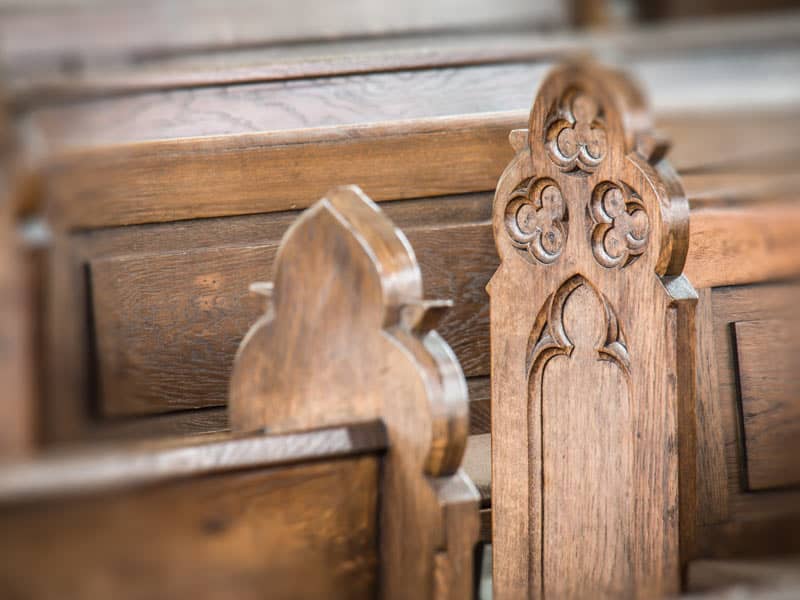At a time when the courts have finally recognized that any mention of God in the public schools is unconstitutional, a Christian attorney general swears on the Bible that he will uphold the law. Can you trust someone like that to keep the Decalogue out of the public schools? Who would not tremble at the prospect that impressionable kids will once again be bullied into thinking they must not steal, lie, maim, kill, or engage in sex with whomever whenever?
No reasonable person could think that religious accounts of male and female and the purpose of sex are compatible with school tutorials in masturbation, condom use, and the irrelevance of gender in the pursuit of pleasure. Get ready for statistics about the consequences of sex instruction in the schools to be hysterically publicized.
One doesn't have to be a Founding Father to see that belief in God strikes at the very heart of the American Way. It took some ingenuity to find in the palimpsest of the Constitution recognition of a woman's right to abort her child. (It was still spoken of in that way at the time.)
Translating the legalization of abortion into "a woman's right to choose" was the brilliant rhetorical turning point in the campaign to bring the country into line with the vision of the Founders.
A.N. Wilson, a troubled and intriguing writer, argues in his recent "God's Funeral" that it was professed believers who brought about the demise of Christianity. He laments its going, if only for aesthetic reasons, regretting that he cannot believe it to be true. It may seem churlish of Wilson to give Christians credit for all this, but surely he has a point. Who more effectively than theologians and church leaders have carried water for the view that sees Christianity as a menace to public life?
But what is one to do about throwbacks like John Ashcroft? For this man, "In God We Trust" is a motto as bright as when it was first minted. He obviously does not think God is a menace to human freedom. He doesn't think that the common morality that reigned supreme until yesterday thwarts and oppresses. He probably thinks murder would go on being wrong even if the Supreme Court said otherwise. He doesn't want to use the law to back up his religion but rather vice versa. He is undoubtedly a menace to the American Way. But is he typical? How many churchmen rose to his defense? We can be thankful the pope did not get into it. He has called those who regard Christianity as a menace proponents of the Culture of Death. People like him go on and on about the million and a half abortions every year.
Make no mistake about it, Christians like John Aschcroft and the pope would put an end to human sacrifice if they could. But does anyone really think that they will prevail? The Founders recognized the menace of religion and made every provision to expel it from the public square. Of course, many of them professed belief in God, but this was simply a façon de parler. If they had really believed God had created all men equal, they would have sold their slaves. It is their vision that has been slowly realized over time as the Constitution was read as a living document. No one has stated the fundamental tenet of the American Creed more succinctly than Justice Anthony Kennedy in his so-called Mystery Clause, the dogmatic heart of the Casey decision. Each of us has a constitutional right to define life as we choose, to define the universe itself as we choose. Here is the right to choose in its quintessential form, and only an idiot would think it compatible with belief in God.
The lines are drawn, the battle is clear. There is to be a struggle between the American Way and Christianity. Patriots must insist that all candidates for public trust express their faith in the articles of our Creed. Not even a smidgin of heresy can be permitted in high places. Look at what happened to the Roman Empire. We must be ruthless as Diocletian. Heads will roll. No one who questions the Right to Choose as defined by Justice Kennedy is fit for public office. It is no defense for deviants to say that they choose to believe in God but everyone else is free to choose not to. This is a ploy. People like this do not think that God exists only in the privacy of their own homes, or on the campus of Christian colleges; they think he is everywhere! They refuse to believe that being an American is incompatible with being a Christian.
All this panic is of course misplaced. People for the American Way do not have to be mobilized to stop the encroachment of religious belief in public life. The churches can be relied upon to perform the task. No one is more committed to the privatization of religious belief than religious leaders. What sophisticated believer is not embarrassed by public professions of faith, testimonials to personal conversion, and claims that Jesus saved me from perdition? The episcopal winces are almost audible. Theologians are busy about their father's business, emptying the Christian message of its content, proving that it is simply a mythical expression of the human need for something or other.

